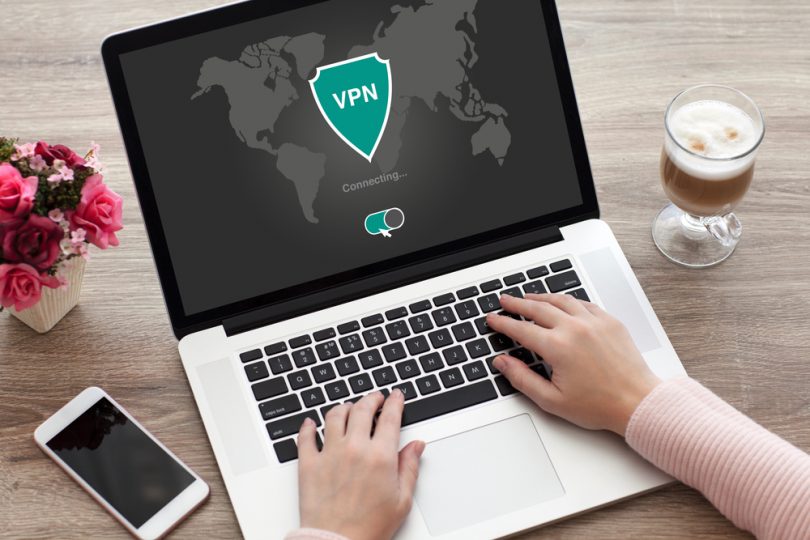A VPN is a virtual private network that gives you privacy and anonymity online by creating a private network from a public internet connection.
It does this by masking your IP (internet protocol) address so that no one can trace your online activity.
Overall, VPNs establish a secure and encrypted connection to provide more privacy than a secured Wi-Fi hotspot.
The question remains, however, of whether or not you absolutely need a VPN for school. Before you decide to get one, here are the pros and cons of using a VPN on your school or campus computer:
The Pros of Using a VPN
VPNs are ideal for remote work setups when you find yourself studying or doing schoolwork using a public connection. This ensures that your data is safe.
Here are some of the main pros of using a VPN for your school computer:
- Anonymity: When you use a VPN, your network appears as if it is coming from another location by disguising your network data. This means that anyone trying to steal information from your computer will be accessing the VPN server’s data instead.
- Secure Connection: It’s possible for others sharing the same public connection to gain access to your computer’s internal network so using a VPN ensures that your data is hidden behind the dummy information provided by the VPN.
- Cost-Effective: While there are plenty of security solutions you can choose for your school or campus computer, VPNs do not require expensive licensing fees or monthly charges.
The Cons of Using a VPN
Even though there are some great advantages to using a VPN, it’s important to understand the disadvantages as well:
- Slow Connection Speeds: Because a VPN is a virtual connection and uses a certain amount of bandwidth, it can cause the internet speeds to slow down.
- Software Blocking: Some sites, especially eCommerce sites, use VPN blocking software to restrict your access.
- Set-Up: VPNs are trickier to set up than a regular internet connection and improperly setting up a VPN can lead to information leaks.
- Dropped Connections: Sometimes the VPN can drop the connection and, when this happens, your network information goes on full display.

Choosing the Right VPN
If you do decide to install a VPN on your campus or school computer, there are some important things to remember – mainly that not all VPN providers are created equal.
Every VPN provider offers different connection speeds, features, and services. Before you buy a VPN, make sure you check out the provider to ensure that you are getting the best deal and that you are not getting scammed.
Some of the factors you should keep in mind when shopping for a VPN include:
- Privacy: Make sure the VPN provider does not log user data (this kind of defeats the whole purpose of getting a VPN).
- Legality: In some countries, using a VPN is illegal. Check with your country’s laws first.
- Cost: The cost of a VPN can vary depending on location, speed, and length of service. Compare pricing and don’t pay for features you don’t need.
Also, be wary of “free” VPN services. It costs money to establish virtual so it doesn’t make sense to offer this service for free. Those that provide free VPN services have been known to steal and sell data instead of protecting it.
Protect Your Data
You may not be too concerned about protecting your schoolwork but if you use your computer for online shopping and banking, it’s vital that you secure your information when you access public networks.
Although there are disadvantages to using a VPN, the pros certainly outweigh the cons. Take this information into consideration and shop around before purchasing a VPN for your computer.







